- Home
- Madeleine L'engle
An Acceptable Time Page 7
An Acceptable Time Read online
Page 7
"Oh, I like that," Polly said. "Do my grandparents have a root cellar?"
"They used to, but when they put in the pool it got dug up, so I had only Louise's to excavate, and I spent weeks on it, with a trowel, then a shovel. And there I found the first of the Ogam stones, and the only one not on your grandparents' land. Over the years, the root cellar had filled in with leaves, loose dirt, other debris, and this had protected the stone. The writing on that first one was far clearer than those I've found in the stone walls."
"What did it say?"
"It was a memorial marker honoring our foremothers."
A car door slammed outside, and Dr. Louise came in, calling, "Hallo, I'm earlier than I thought I'd be. I hope there's tea left for me."
"Plenty," the bishop said. "I made a large pot, and Polly and I've been drinking cocoa instead."
Dr. Louise shucked off her heavy jacket and then her white coat, both of which she hung on deer antlers to the side of the door. "I inherited the antlers with the house."
Polly laughed. "You don't strike me as a hunter."
"Hardly." The doctor helped herself to bread and butter. "Nase, you're really becoming domesticated in your old age. This isn't half bad."
"It looks better now than when I took it out of the oven."
"Bishop," Polly said softly, "please go on."
"If I am right about root cellars, and of course I may not be, they were ancient time devices, a way the druids could commune with their past, with their gods, with powers of both good and evil long lost to us. You might call the root cellar a three-thousand-year-old time capsule."
"Have you been watching too much TV?" Dr. Louise asked.
"It's probably affected my metaphors," her brother agreed. "All spring the root cellar kept drawing me, but also sending me out. I found other Ogam stones in Alex and Kate's stone walls, worked on translating their hieroglyphs. Found three in a small cairn of stones near your star-watching rock, Polly. I knew there was something special about the star-watching rock. That it was a place of power. Benign power."
Polly said, "It was always a special place to my mom and her sibs. Go on, please, Bishop."
"In mid-June, as the days lengthened toward the summer solstice, an early heat wave hit us, and the root cellar was cool, so I spent more time there. Not digging anymore. Just sitting. Often moving beyond thought into the dark and timeless space of contemplation."
"I was afraid you were becoming a pagan," Dr. Louise remarked with irony.
"No, Louise, no. I was not then and am not now turning to the old gods. No, the God I have tried to serve all my life is still good enough for me. Christ didn't just appear as Jesus of Nazareth two thousand years ago, don't forget. Christ is, will be, and certainly was at the time the druids dug the root cellar three thousand years ago, just as much as now. But we rational and civilized people have turned our backs on the dark side of God because we are afraid of the numinous and the unexplainable. Forgive me, I'm preaching. I've spent so much of my life giving sermons that it's a habit I find hard to break."
"You're a good preacher," Dr. Louise said with sisterly pride.
"So, please," Polly urged.
"Midsummer's Eve," the bishop continued, "I was in the root cellar. When I called it a three-thousand-year-old time capsule, I was in a way joking. It's a metaphor that seems right. You see, what happened was that I was in the root cellar, and then, without transition, I was on the star-watching rock, and there was Anaral."
"And--"
"That first time we couldn't understand each other, except by gestures. I jumped to some conclusions, because she obviously wasn't an ordinary girl. There was a dignity, a nobility about her that set her apart. But it was a while before we knew each other's language well enough to communicate and I could truly believe that I had moved through a great deal of time."
"Bishop," Polly asked, "can you just go in and out of the time gate whenever you want to?"
"Oh, no." He shook his head. "I'm not sure how it happens when it happens. There is a feeling, just as you said, of lightning, and the earth quivering, if not quaking, and something seems to happen to the air. After that first time it has never again been from the root cellar, always from the star-watching rock. I go there and wait, and sometimes Annie or Karralys will come to me. But there will be weeks when nothing happens."
Dr. Louise said, "Thanks for the tea. I have some charts to go over."
The bishop was stiff. "I know it offends you, Louise. I try not to talk about it in front of you."
"That's not the solution, either," the doctor said. "I keep wondering what Polly's family would make of your madness." She turned to Polly. "Are you going to tell them about this?"
"Of course. But not yet. I need to understand more, first. And I don't want to worry them."
"You may have to," the doctor said.
The bishop's eyes were closed, as though he was listening. "One of the stones from the cairn by the star-watching rock had a lovely rune on it. Hold me in peace while sleeping. Wake me with the sun's smiling. With pure water slake my thirst. Let me be merry in your love. That's a simplicity that's gone, at least in our so-called higher civilization."
"Don't knock our civilization," his sister warned. "Cataracts used to make people blind, and still do, in many parts of the world. Your lens implants have you seeing like a much younger man."
"That's technology, not civilization." The bishop was testy. "I'm grateful every day that I can read and write. I don't underestimate knowledge. But we get into trouble when we confuse it with truth."
"All right, Nase."
"Truth is eternal. Knowledge is changeable. It is disastrous to confuse them."
"My dear, I don't," Dr. Louise said. "But I can conceive of your adventures as having little to do with either knowledge or truth. They're beyond reason. And now I'm afraid they've made Kate and Alex terribly upset."
"I'm sorry," the bishop said. "I didn't expect Polly to become involved. If I've been closemouthed up till now, it has been not only because of your distaste for what has been happening but because I thought it was my own, unique adventure. I never expected that Polly--I simply have to have faith that all this has meaning."
Dr. Louise sighed, rose. "I really do have to go over charts."
Polly, too, stood. "I'd better get on back. I promised I wouldn't be late."
She drove off down the long dirt road. The tree frogs were singing their autumn farewell to summer. A few lingering insects chirred away. Above her flew a great gaggle of geese, honking their way south. Their haunting cry was new to Polly, and she found it both exciting and sad. On either side of the road, bushes were red and rust-colored. There was some dry-looking goldenrod and joe-pye weed. As she turned into a curve, she could see the hills shadowed in purple. Low hills weathered by centuries. Comforting hills.
When her grandmother came in to say good night, Polly was deep in Bishop Colubra's notebook.
"This Ogam's really not too difficult, as long as I don't try to connect it to Latin or Greek roots but think of it as a made-up language."
"Polly." Her grandmother sat on the edge of the bed. "It is my hope that you are not going to have any opportunity to speak this language."
"I love languages, Grand. They're fun. You know how Granddad loves to do his puzzle in the paper every day? It's the same sort of thing."
Her grandmother ruffled her hair. "I want you to have fun, my dear, but not to get yourself into any kind of danger. I hope you'll have fun with Zachary on Thursday. But he strikes me as a complex young man, and I'm very uncomfortable with the idea that you think he's seen someone from the past."
"I find it pretty uncomfortable, too."
"And you'll stay away from the pool and the star-watching rock?"
"Yes. We will." Polly sighed, then indicated the pile of books still on her bed table. "I went through the parts you marked and took notes. I love learning from you, Grand."
"You don't miss school?"
"I didn't much like
it. I was used to being taught by Mother and Daddy when we lived on Gaea, and the Cowpertown school was pretty boring after that. I wasn't that great at school. Okay, but not great."
"Your mother must have understood that. School was disastrous for her till she went to college."
"I find that hard to believe."
"Believe it."
"But she's so brilliant."
"She's good at the difficult stuff, but not with the easy, and I guess you're not unlike her in that."
"Well--maybe. Like Zachary, I'm better if I'm interested. The only teacher I really liked left. And last year I could go to Beau Allaire and do homework there and Max could make it interesting."
"Her death must be a great grief to you." Her grandmother touched her gently on the knee.
"Yes. It is. But Max would want me to get on with life, and that's what I'm trying to do. But I do miss..." For a moment her voice trembled.
"Max was very close to Sandy and Rhea, too. Sandy says her death has left a big hole in their lives."
"I guess the planet is riddled with holes, isn't it? From all the people who've lived and then died. Do the holes ever get filled?"
"That's a good question."
"Grand, those people I saw when I went back--Anaral and--Maybe you don't want to talk about it?"
"Go on."
"They've been dead maybe three thousand years." She shuddered involuntarily. "What about their holes? Are the holes just always there, waiting to be filled?"
"You have always tended to ask unanswerable questions. I don't know about those holes. All I know is that Max gave you great riches, and we would, all of us, be less than we are if it weren't for those we love and who've loved us who have died." Her grandmother rose, bent down, and kissed Polly. "Good night, my dear. Sleep well."
Polly woke up, freezing. Her quilt had slid to the floor. She was caught in a dream, not quite a nightmare, of Zachary driving along a winding road in the bishop's blue pickup truck. She was in the back of the truck and icy rain was drenching her. Every time Zachary hit a bump, she was nearly thrown out. To one side of the road was a cliff, to the other a drop down to a valley far below. The truck hit a bump and--
She woke up. Hadron's warm body was not by her. She picked up the quilt and huddled under it. Her feet were like ice. There was no way she was going to be able to escape the dream and go back to sleep until she warmed up.
The meaning of the dream was apparent to her. It was simply her reaction to Zachary's phone call and had, she thought, no particular meaning of its own. She had dreamed of the rain chilling her because the quilt had slid off the bed and she was frozen. The wind hit against the house, emphasizing the cold.
The pool. It was by far the warmest place in the house. Forgetting her promises, forgetting for the moment the reason for them, aware only that she was shivering, she tiptoed downstairs. All the fires were banked. The house was cold. She opened the door to the room with the pool and was met with a humid warmth and a green smell from all the plants which flourished there.
Moonlight was coming through the skylights. The plants hanging in the windows made strange shadows. Then, as her eyes adjusted, she saw an unexpected shadow, a darkness in one of the poolside chairs. Someone was sitting there.
Terrified, she reached for the light switch and the room was flooded with light.
Anaral leapt from the chair like a wild gazelle, more frightened than Polly. Surely Anaral's world knew electricity only as lightning unleashed and dangerous.
Polly's heart stopped pounding in her throat. "Lights. Electric lights. Don't be afraid."
Anaral capsized, rather than sat back down. "Bishop told me about lights. Yes. Still, it frightens me. No one can hear us?"
"Not if we're quiet. How did you get here?"
"I came from our great standing stones to this place of water in a box." Anaral was referring to the pool, the pool that was over an underground river. "Where your water in the box is in your time circle, in my circle it is our most holy ground, the stones that stand over the scent of water. I lay on the sarsen and I thought about you and I called myself to you. And I came." She looked at Polly with a delighted smile. Then she got up and walked slowly around the room, looking at the poolside chairs, the stationary bike Polly's grandmother used when the weather was too inclement for walking outside. "Bishop says you live in house. We are in house?"
"Yes. This is the new wing, built for the pool--the water in a box." Of course Anaral would know nothing about a house or its contents.
Anaral picked up a paperback book lying on a small table by the chair where she had been sitting. "One day Bishop brought book to show me. Bishop says you have stories in books."
"Many stories."
"Karralys says that for stories the writing has to be more--more full than ours, less simple."
"Yes, more complex."
Anaral touched her forehead. "Druids have stories here. Many stories. We keep the memory. Without our memory we would be--less. I do not know the word."
"Our books are like keepers of the memory. In them we have the stories of many people, many times, many cultures."
"Cultures?"
"People who live in different circles of place, as well as time."
Anaral nodded. "You are certain you are not a druid?"
Polly laughed. "Positive."
"But you have gifts. You cross the threshold of time. To do that requires much training, and Karralys was concerned that, though I have the training, no threshold was open to me. But then I saw Bishop before he did, and now I am practicing using the gift and the training by coming to you. And you crossed into my time."
Polly spread out her hands. "I don't know how I did it, Anaral. I haven't any idea. I don't know if I could ever do it again."
"Karralys has been to many places, to many different times. I have crossed only one threshold, seen only you and Bishop. Karralys says that there is meaning that you have come, meaning for the pattern."
"What pattern?"
"The pattern of lines drawn between the stars, between people, between places, between circles, like the line between the great stone and the water in a box."
Polly thought of the book of constellations in her room, with the lines drawn between the stars.
Anaral looked at her, smiling. "It is nice, what I sit on."
"A chair."
"At the great stones there are chairs, but very different, carved out of stone. This holds my body with more ease."
Polly wondered what Anaral would think of the rest of the house, of the bedroom, the kitchen. All the things that Polly took for granted, hot running water, toilets, refrigerators, microwave, food processor--would they seem like miracles to Anaral, or would she think them magic, perhaps evil magic? "Anaral, I'm very glad to see you, even in the middle of the night. But--why have you come?"
"To see if I could," Anaral said simply. "Everybody else was asleep, so I could practice the gift all alone. I came and I called you. To know you. To know why you can come to my circle of time. To know if you have been sent to us by the Presence."
"The Presence?"
"The One who is more than the Mother, or the goddess. Starmaker, wind-breather, earth-grower, sun-riser, rain-giver. The One who cares for all. Karralys says that it happens only once or twice in a pattern where the lines touch so that circles of time come together with the threshold open in both directions. When this happens, there is a reason."
"Have you asked the bishop?"
"Bishop, too, says there is a reason. But he does not know what. Do you?"
Polly shook her head. "Haven't the foggiest."
"The--"
"I don't know the reason, Anaral. But I like you. I'm glad you're here. I would like to get to know you better."
"Friends?"
"Yes. I'd like to be friends."
"It is lonely for druids, sometimes. Friends care for each other."
"Yes."
"Protect each other?"
"Frie
nds do everything they can to protect each other."
"But it is not always possible." Anaral shook her head. "In a terrible storm, or when lightning starts fire, or when other tribes attack."
"Friends try," Polly said firmly. "Friends care." She felt deeply drawn to Anaral. Was it possible to develop a real friendship with a girl from three thousand years ago? "I would like to be your friend, Anaral."
"That is good. I am your friend." Anaral stood up. "Bishop calls me Annie."
"Yes. Annie."
"I willed for you to wake up, to come here, to water in a box. And you came. Thank you."
"The quilt fell off my bed. I was cold." Quilt. Bed. It would make no sense to Anaral.
"You came, Polly. Now I go." Anaral went to one of the north windows. "See? Now I know how to open it." She jumped lightly down and ran off into the night.
Polly looked after her until she disappeared into the woods. Then she closed the window. She stayed by the pool for several more minutes, but nothing happened. The water was quiet. She sat in one of the poolside chairs, wondering, until she grew drowsy and her eyelids drooped. She was warm now. Even her toes. Had Anaral been part of a dream? She went upstairs. Perhaps she would understand more in the morning.
She woke later than usual, dressed, and went downstairs. Her grandfather was sitting at the table drinking coffee and doing his puzzle. Polly poured herself half a cup of coffee, filled it with milk, and put it in the microwave. For the moment she had forgotten her bad dream, forgotten going down to the pool to warm up, forgotten Anaral's visit. "This does make cafe au lait much easier. I hate washing out a milky saucepan."
"Polly." Her grandfather looked up from the paper. "Tell me what you know about time."
She sat down. "I don't know that much."
"Tell me what you know."
"Well, there's the--uh--the space/time continuum, of course."
"And that means?"
"Well, that time isn't a separate thing, apart from space. They make a thing together, and that's space/time. But I know that there isn't any time at all if there isn't mass in motion."
Her grandfather nodded. "Right. And Einstein's famous equation?"
"Well, mass and energy are equivalent, so any energy an object uses would add to its mass, and that would make it harder to increase its speed."
"And as it approached the speed of light?"
"Its mass would be so enormous that it couldn't ever get to the speed of light."

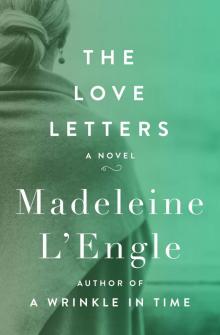 Love Letters
Love Letters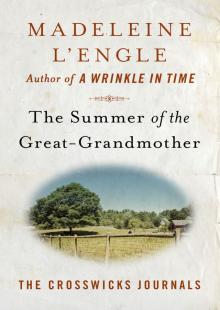 The Summer of the Great-Grandmother
The Summer of the Great-Grandmother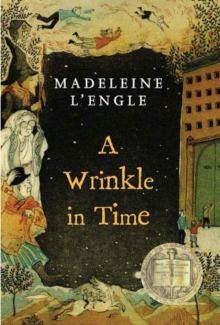 A Wrinkle in Time
A Wrinkle in Time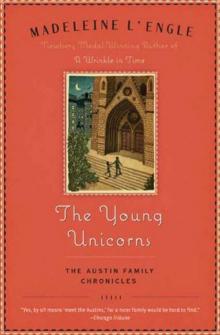 The Young Unicorns
The Young Unicorns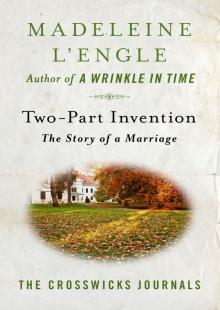 Two-Part Invention: The Story of a Marriage
Two-Part Invention: The Story of a Marriage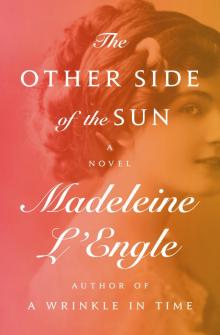 The Other Side of the Sun
The Other Side of the Sun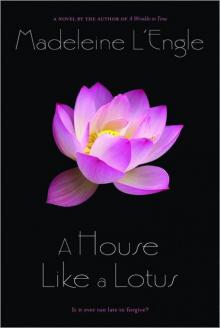 A House Like a Lotus
A House Like a Lotus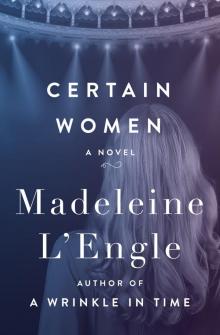 Certain Women
Certain Women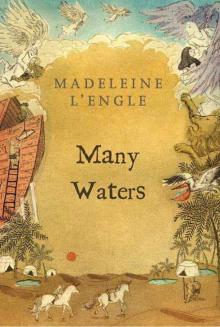 Many Waters
Many Waters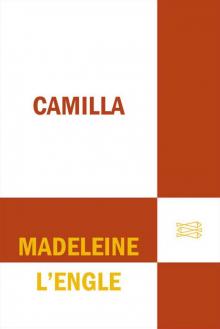 Camilla
Camilla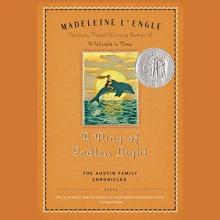 A Ring of Endless Light
A Ring of Endless Light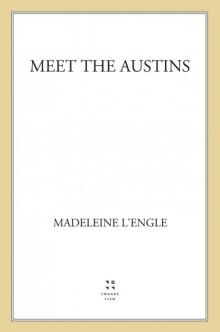 Meet the Austins
Meet the Austins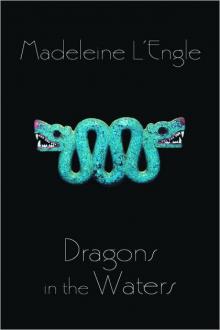 Dragons in the Waters
Dragons in the Waters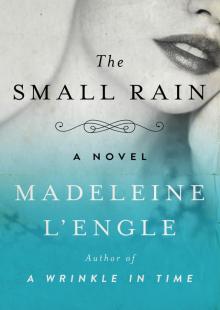 The Small Rain
The Small Rain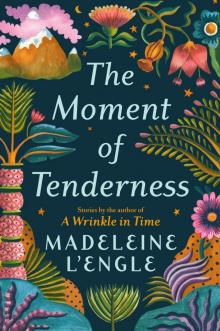 The Moment of Tenderness
The Moment of Tenderness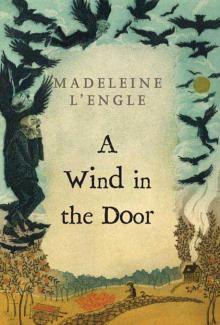 A Wind in the Door
A Wind in the Door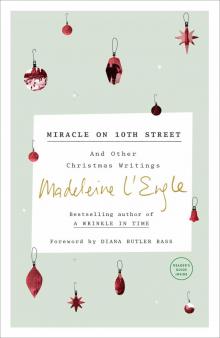 Miracle on 10th Street
Miracle on 10th Street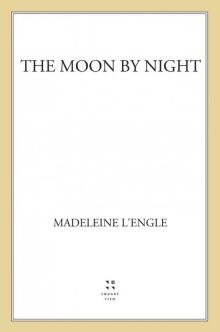 The Moon by Night
The Moon by Night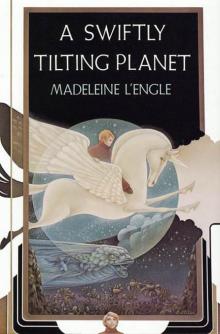 A Swiftly Tilting Planet
A Swiftly Tilting Planet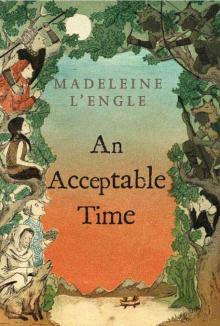 An Acceptable Time
An Acceptable Time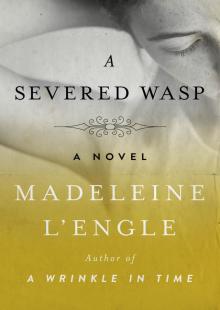 A Severed Wasp
A Severed Wasp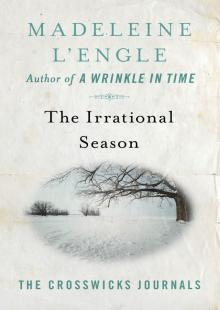 The Irrational Season
The Irrational Season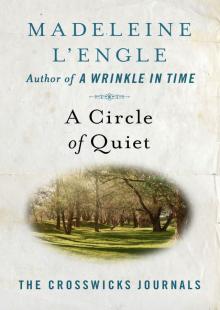 A Circle of Quiet
A Circle of Quiet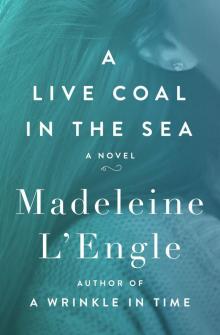 A Live Coal in the Sea
A Live Coal in the Sea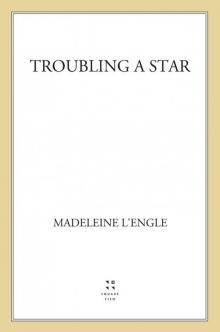 Troubling a Star
Troubling a Star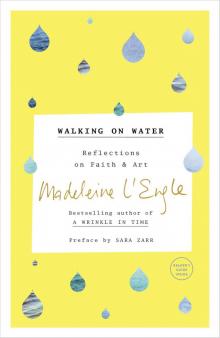 Walking on Water: Reflections on Faith and Art
Walking on Water: Reflections on Faith and Art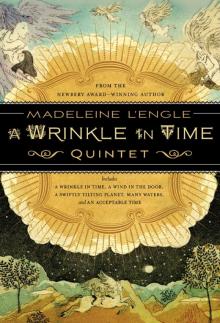 A Wrinkle in Time Quintet
A Wrinkle in Time Quintet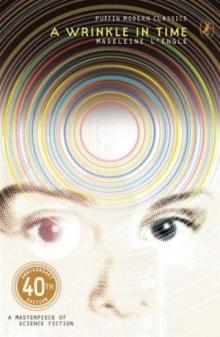 Wrinkle in Time
Wrinkle in Time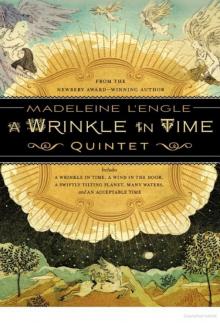 The Wrinkle in Time Quintet
The Wrinkle in Time Quintet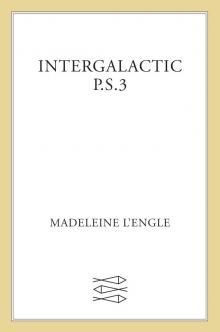 Intergalactic P.S. 3
Intergalactic P.S. 3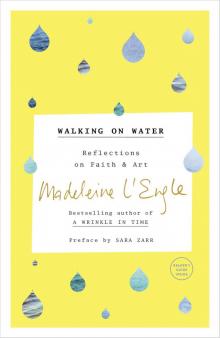 Walking on Water
Walking on Water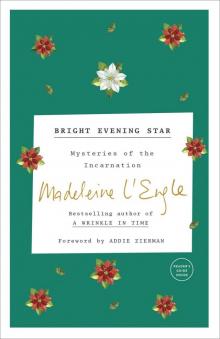 Bright Evening Star
Bright Evening Star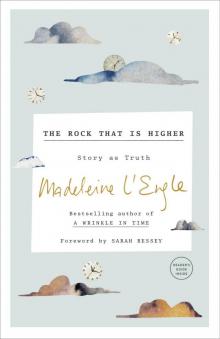 The Rock That Is Higher
The Rock That Is Higher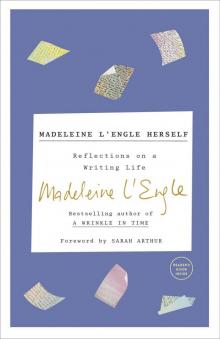 Madeleine L'Engle Herself
Madeleine L'Engle Herself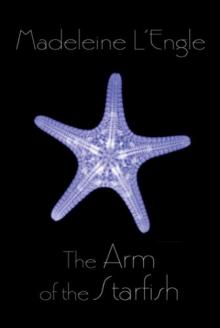 The Arm of the Starfish
The Arm of the Starfish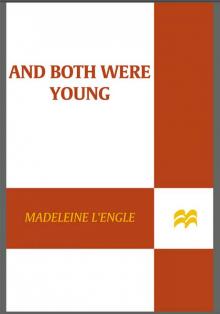 And Both Were Young
And Both Were Young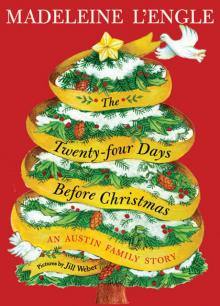 The Twenty-four Days Before Christmas
The Twenty-four Days Before Christmas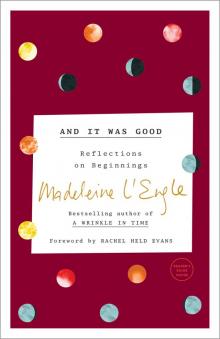 And It Was Good
And It Was Good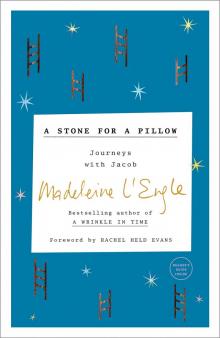 A Stone for a Pillow
A Stone for a Pillow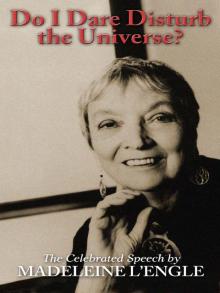 Do I Dare Disturb the Universe?
Do I Dare Disturb the Universe?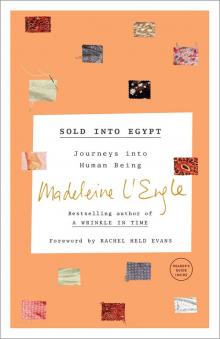 Sold into Egypt
Sold into Egypt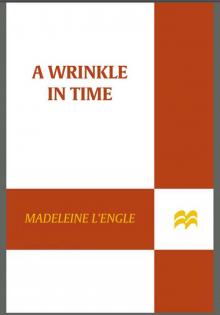 A Wrinkle in Time (Madeleine L'Engle's Time Quintet)
A Wrinkle in Time (Madeleine L'Engle's Time Quintet)